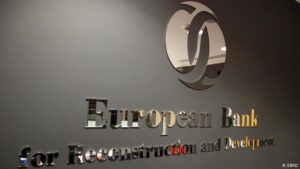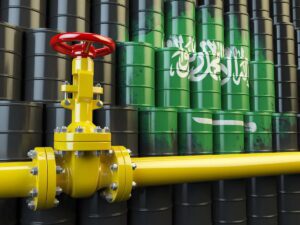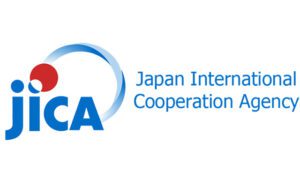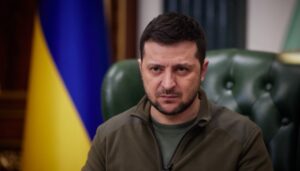
Registration of tax invoices, interrupted at the beginning of the war, will resume on Friday, May 27, said Daniil Getmantsev, head of the parliamentary committee on finance, tax and customs policy.
“Friends, tomorrow we are opening the registration of tax invoices. The system will operate in the pre-war regime with the reservations specified directly in the law. I urgently ask converters, individual tax specialists and other professional evaders not to count on the fact that in the conditions of war the scheme tax credit will go unnoticed,” – he wrote in Telegram on Thursday evening.
According to him, the State Tax Service will react harshly to any such attempts, “according to the laws of war with all the consequences.”
Getmantsev also appealed to businesses with a request to immediately inform them of any local distortions on the part of the tax authorities, if any.
“The tax office has an absolutely unambiguous clear task – to ensure the registration of tax invoices in full compliance with the law and the requirement of white business,” the head of the committee said.
As reported, on May 12, the Verkhovna Rada adopted a law (draft No. 7360), which, in particular, completely resumes the operation of the VAT Electronic Administration System (SEA). Registration of tax invoices, according to him, for February-May 2022 is provided until July 15 this year.
According to the document, taxpayers are exempted from liability for late reporting or payment of taxes in the period after the start of the war on February 24, if these tax obligations were fulfilled within 60 days from the date of renewal of such an opportunity. The same concessions are given to taxpayers who switched to a simplified taxation system with the payment of 2% tax.
In addition, the law resumes cameral and documentary audits of tax reporting, as well as budgetary VAT refunds, but

Estonian company Nortal, which is engaged in strategic consulting and technology implementation, has bought the Skelia IT company along with its offices in Eastern Europe, Dragon Capital said in a press release.
“Skelia has established itself as an international leader in building dedicated technology teams in areas where customers want to remain in control of the development process while experiencing the stability of a premium team and quality of service. Their strong presence in western Ukraine and Poland will provide Nortal with an excellent platform for growth. Together, we can further expand our business across geographies and time zones while strengthening our offering and serving customers across the full spectrum of their needs,” Nortal CEO and Founder Priit Alamäe was quoted as saying.
As noted, the companies will focus on creating new synergies and value for customers, as well as creating additional opportunities for Skelia employees in Poland and Ukraine, which will now become part of Nortal.
“By joining forces, Nortal and Skelia will leverage each other’s complementary and individual strengths, as well as provide new career opportunities for our global combined team of more than 1,700 people. Nortal brings us a wealth of experience in building end-to-end solutions and products. This greatly complements Skelia’s longstanding business of building over 200 sustainable cross-border IT and engineering organizations for leading companies in Europe, the UK, the Nordics and the US,” Skelia CEO and co-founder Patrick Vandewalle was quoted as saying.
The amount of the agreement is not reported.
Skelia was founded in 2008 and currently employs over 350 people, primarily in Ukraine and Poland. Skelia serves clients in 10 countries and operates through a network of offices in the Benelux countries, Poland, Ukraine and the USA.
Nortal was founded in 2000. The company has more than 1.4 thousand employees and has 20 offices in Europe, the USA and the Middle East.
Dragon Capital acted as an advisor to Nortal on this deal. Oaklins Sweden acted as an advisor to Skelia.

The European Bank for Reconstruction and Development (EBRD) intends to invest $1 billion in 2022 and is ready to finance NJSC Naftogaz Ukrainy, said Bank President Odile Renault-Basso.
“We intend to continue investing $1 billion this year and we are focused on supporting key infrastructure such as the power grid (Ukrenergo), we are reserving a Naftogaz credit line to support their working capital and liquidity,” she said during the discussions at the Ukrainian House in Davos as part of the World Economic Forum on Wednesday.
The EBRD intends to offer an investment plan to support these companies and the private sector in general, provide credit lines for agribusiness and pharmaceuticals and not only, she added.
“We also plan to work with municipalities to help internally displaced people,” said Renaud-Basso.

At a meeting with Foreign Minister of Saudi Arabia Prince Faisal Bin Farhan Al Saud, Minister of Foreign Affairs of Ukraine Dmytro Kuleba asked Saudi Arabia to help solve the fuel crisis in Ukraine, and also discussed ways to unblock food exports from Ukraine to Arab and African countries.
“Met with my Saudi counterpart Prince Faisal Binh Farhan Al Saud. Ukraine and Saudi Arabia are friends and partners. Focused on ways to unlock Ukraine’s food exports to Arab and African countries. Kingdom can play an important role. I also asked Saudi Arabia to help us resolve our fuel crisis,” Kuleba tweeted on Wednesday.

On May 24, Ukraine received a JPY 13 billion or $100 million loan from the Japan International Cooperation Agency (JICA) on concessional terms with maturity period of 30 years at 1% per annum with a grace period of 10 years, the Ministry of Finance has reported.
“The agreement is the first part of the agreed financial assistance between Ukraine and Japan,” the Finance Ministry said in a release on Tuesday.
The ministry said that the funds will be directed to the state budget to finance priority expenses, to support the most unprotected population of Ukraine, in particular, to ensure priority social and humanitarian expenses, and health care.

President of Ukraine Volodymyr Zelensky said that the main task of the international advisory group of specialists on security guarantees for Ukraine will be the development of such guarantees that will work throughout the life of many generations of Ukrainians.
According to him, the President’s Office and diplomats continue to work to ensure that Ukraine receives reliable guarantees of its own security after the end of the war.
“In particular, the international advisory group headed by Yermak and ex-NATO Secretary General Rasmussen was established. The group will include leading experts in the field of security and defense, diplomacy. Their task is to develop a format of guarantees that will really work, moreover, work not for several months or a year, but throughout the life of many generations of Ukrainians,” Zelensky said in an evening video message on Tuesday.
As reported, on Tuesday, May 24, head of the Office of the President of Ukraine Andriy Yermak announced the creation of an international advisory group that will provide proposals on security guarantees for Ukraine.
It will be headed by Andriy Yermak and ex-NATO Secretary General Anders Fogh Rasmussen.